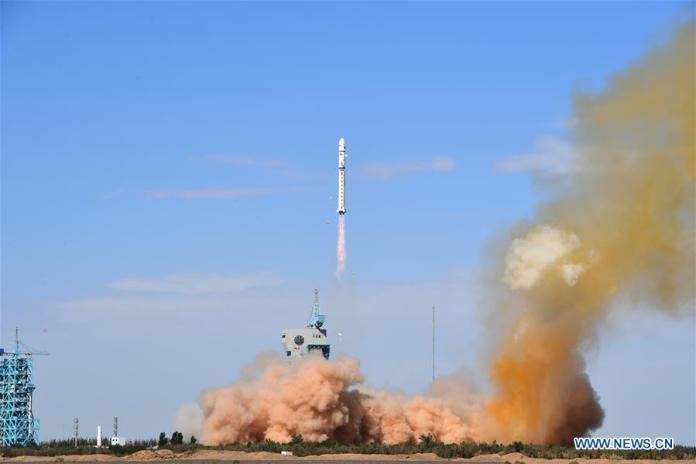Another Chinese Gaofen Earth-imaging satellite launched Sunday aboard a Long March 2D rocket, riding to space with a pair of experimental rideshare payloads for the Chinese military.
The fifth in a series of Gaofen 9 Earth observation satellites lifted off at 0227 GMT Sunday (10:27 p.m. EDT Saturday) atop a liquid-fueled Long March 2D rocket from the Jiuquan space base in the Gobi Desert of northwestern China, according to Chinese state media.
The new satellite — designated Gaofen 9-05 — “will be mainly used for land surveys, city planning, land right confirmation, road network design, crop yield estimation and disaster prevention and mitigation,” China’s state-run Xinhua news agency said.
The description matches information published about previous satellites in the Gaofen 9 series.
Previous Gaofen 9 satellites launched in 2015 and on May 31, June 17 and Aug. 6 of this year. It is not clear whether the Gaofen 9 satellites are identical or only share a name, but Chinese state media reports associated with each launch indicated the payloads all carried optical Earth-imaging cameras with a resolution of better than 3.3 feet, or 1 meter.
China says the Gaofen series of satellites are managed by civilian officials. The broader Gaofen fleet — which numbers more than a dozen spacecraft — includes satellites with optical, infrared and radar imaging payloads.
The two-stage Long March 2D rocket deployed the Gaofen 9-05 satellite and two secondary payloads into a polar orbit roughly 300 miles (nearly 500 kilometers) above Earth, with an inclination of 97.5 degrees to the equator.
One of the two rideshare payloads, named Tiantuo 5, was developed by the National University of Defense Technology, a military academy founded by the Chinese People’s Liberation Army. The 173-pound (78.5-kilogram) Tiantuo 5 spacecraft will test technologies to collect data on maritime and aviation traffic, automated data collection, and a new electric propulsion system for small satellites, according to the university’s website.
The other small satellite launched by the Long March 2D rocket was a “multifunctional test satellite” developed by the Academy of Military Science, a research institute of the People’s Liberation Army. Xinhua said the satellite “will test and verify technologies such as communication, navigation and remote sensing in orbit.”
Email the author.
Follow Stephen Clark on Twitter: @StephenClark1.
– Advertisement –
